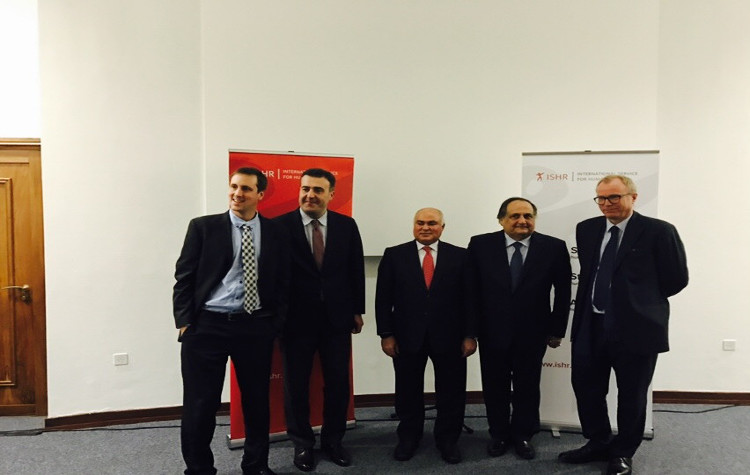Asian Forum for Human Rights and Development (FORUM-ASIA), International Service for Human Rights (ISHR), Centro de Estudios Legales y Sociales (CELS), Conectas, and Human Rights Watch (HRW) hosted a welcome reception for UN Human Rights Council President for 2017, Joaquín Alexander Maza Martelli, on 2nd February 2017.
In his remarks to civil society, President Maza Martelli, stated the importance of the support of states and civil society to human rights, and outlined his vision for the Council.
“The most important thing in the process is to see what is possible to develop human rights,” he said. “Don’t worry about circumstance. Don’t worry about the international context. We’re going to have what we have right now, a difficult situation. But with the difficult situation, we should focus on possibility.”
The Council elects a new President every year, according to the regional rotation of the Presidency. President Maza Martelli represents the group of Latin American and Caribbean states, and is from El Salvador. Together with members of his Bureau from Egypt, Iraq, Georgia and Switzerland, he will preside over this year’s sessions of the Council. The regular sessions take place thrice a year in March, June, and September. The President plays a crucial role in addressing issues related to the work of the Council, notably in following up on allegations of reprisals against human rights defenders who cooperate with the UN.
The Human Rights Council is “responsible for strengthening the promotion and protection of human rights around the globe and for addressing situations of human rights violations and make recommendations on them.”[1] It is comprised of 47 member states elected by the UN General Assembly for a maximum of three years. The thirteen Asia-Pacific states that are currently members of the Council are Bangladesh, China, India, Indonesia, Iraq, Japan, Kyrgyzstan, Mongolia, Philippines, Qatar, Republic of Korea, Saudi Arabia, and United Arab Emirates.[2] The Universal Periodic Review is one of the Council’s mechanisms. It also works with UN Special Procedures, which include mandate holders on thematic or country-specific issues. The Council meets at the UN Office at Geneva and the Office of the High Commissioner for Human Rights serves as its Secretariat.
R. Iniyan Ilango, FORUM-ASIA UN Advocacy Programme Manager, spoke on Asian civil society’s expectations under the leadership of the new President. “It is very important that discussions in Geneva are inclusive,” he said. “Under your leadership Mr. President we hope to see more and more Southern, regional and national civil society groups participating in important discussions facilitated by the Secretariat – including those on institution building.” He added that as Asia does not have its own regional human rights body, bodies such as the UN Human Rights Council become of great importance for the region.
Representatives of other civil society organisations expressed similar sentiments on the need for the Human Rights Council to be inclusive. Michael Ineichen of ISHR argued that the international human rights system is more important than ever as space for activism at the national level closes. Laila Matar of Human Rights Watch emphasised the President’s role in defending the institutional framework and values of the Council, particularly in ensuring civil society space. Andrea Bolaños, on behalf of Latin American NGOs, stated that this was needed in response to threats against human rights defenders.
The reception was also a farewell for former President Choi Kyonglim who expressed his gratitude to civil society for supporting his Bureau and for their dedication to human rights. He stated the need to protect civil society from unjustified attacks and give them space. Iniyan thanked Ambassador Choi for his efforts to strengthen his predecessors’ work on reprisals and to improve the efficiency and impact of the Council, and expressed his hope for these to continue under the tenure of the new leadership.
***
For further information, please contact:
– United Nations Advocacy Programme, FORUM-ASIA, [email protected]
[1] http://www.ohchr.org/EN/HRBodies/HRC/Pages/AboutCouncil.aspx
[2] http://www.ohchr.org/EN/HRBodies/HRC/Pages/AboutCouncil.aspx



